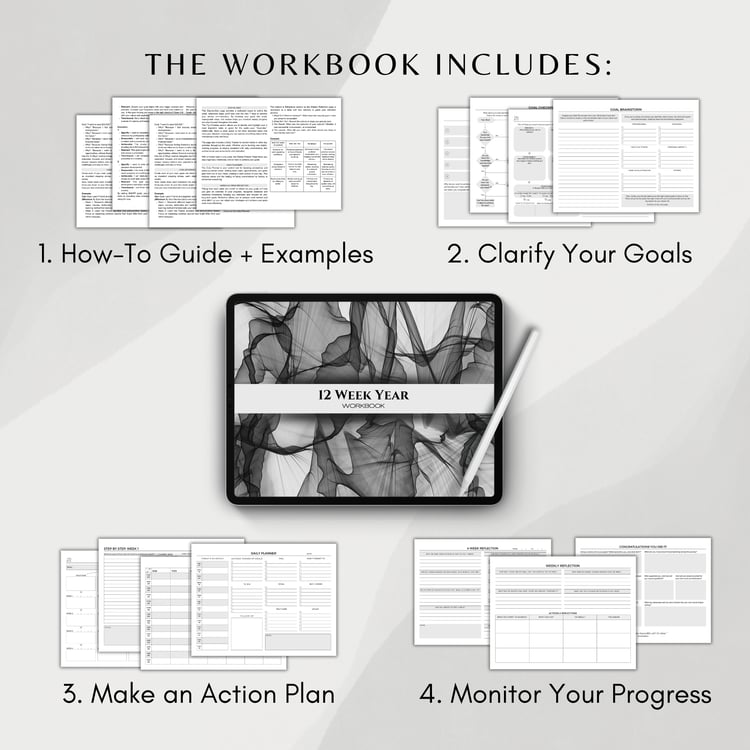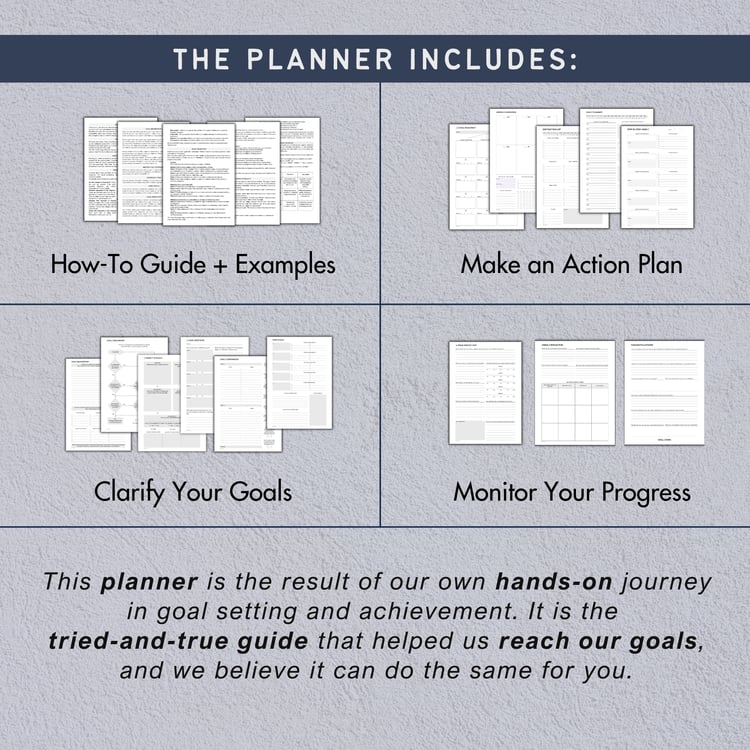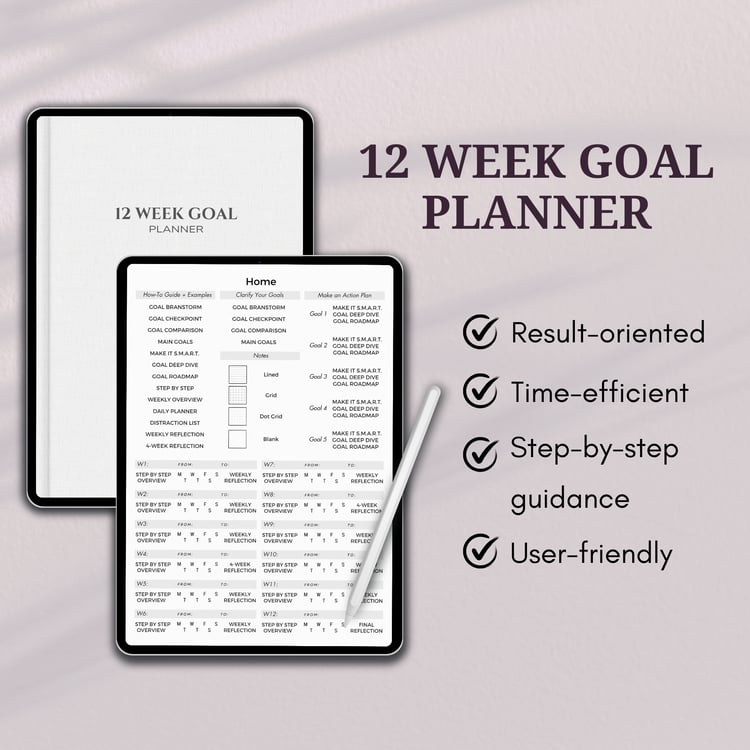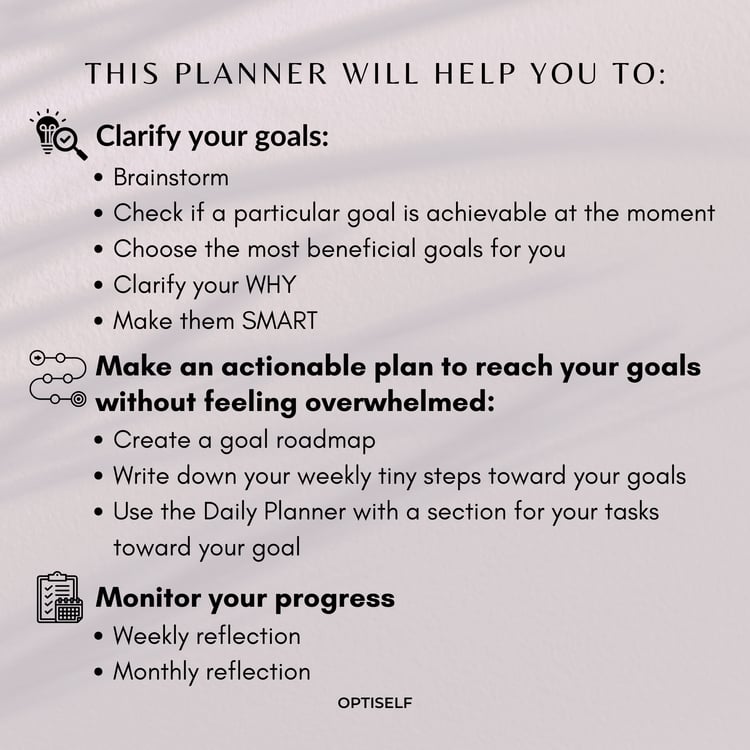Discipline is like a superpower that fuels success in every area of life. Whether you're working toward personal goals, career advancement, or healthier habits, discipline helps you stay on track. It’s not just about feeling motivated (because let’s be honest, motivation comes and goes). Instead, it’s about training your mind to keep moving forward—even on the days when you don’t feel like it.
Discipline isn’t something you're born with; it’s a skill you can build! It takes intentional action, consistent effort, and a series of strategies designed to help you stay on track, even in the face of challenges. In this article, we will explore proven methods to build extreme discipline and integrate them into your daily life, so you can unlock your full potential and transform your habits for lasting success.
1. Create a Structured Routine

Having a structured morning and evening routine can make your days feel smoother and more intentional. Start your mornings with positive habits like meditation to cultivate mindfulness, exercise to energize your body, or journaling to set intentions. For example, begin your day with 10 minutes of deep breathing, followed by a 30-minute workout and a protein-rich breakfast to fuel your body. Then, review your top three priorities for the day to set a clear direction.
At night, wind down with relaxing activities such as reading, gratitude journaling, or light stretching. Limit screen time before bed and establish a regular sleep schedule so you wake up feeling refreshed and ready to take on the day. For instance, you could spend 15 minutes reading a book, writing down three things you’re grateful for, and dimming the lights an hour before bed.
2. Use Time Blocks for Key Activities
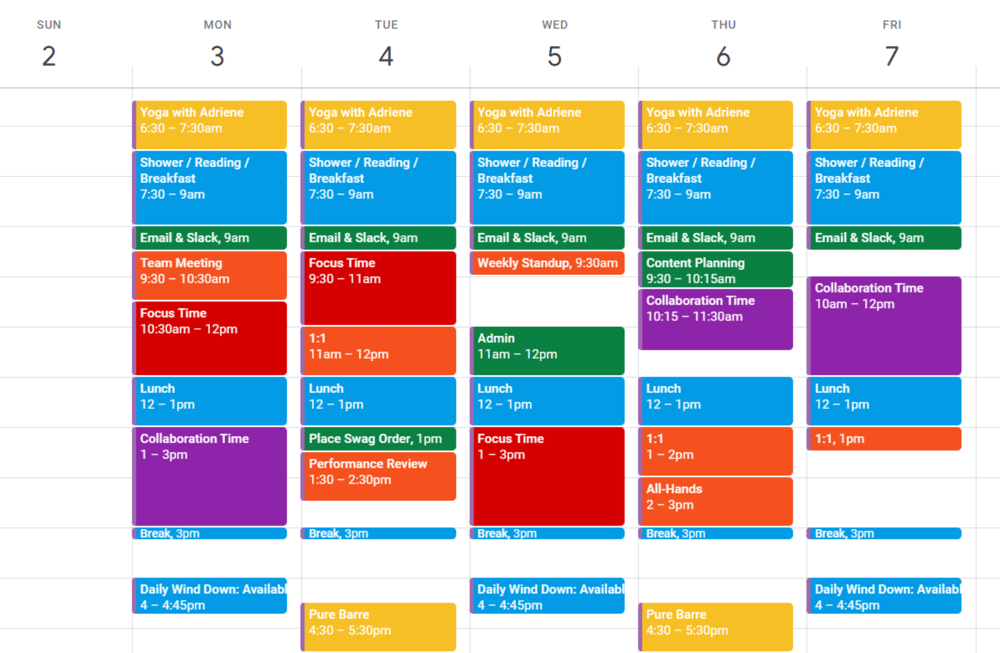
Scheduling time blocks for important tasks ensures that you stay focused and make the most of your time. Allocate specific time slots for activities like deep work, reading, exercise, and socializing to maximize productivity and minimize distractions. For example, dedicate the first two hours of your morning to deep work without interruptions, followed by a 15-minute rest.
Set aside an hour in the evening for personal growth activities, such as reading or skill-building, and schedule short breaks between tasks to maintain mental clarity. By treating these time blocks as non-negotiable appointments, you can build a structured and disciplined routine that enhances efficiency and long-term success.
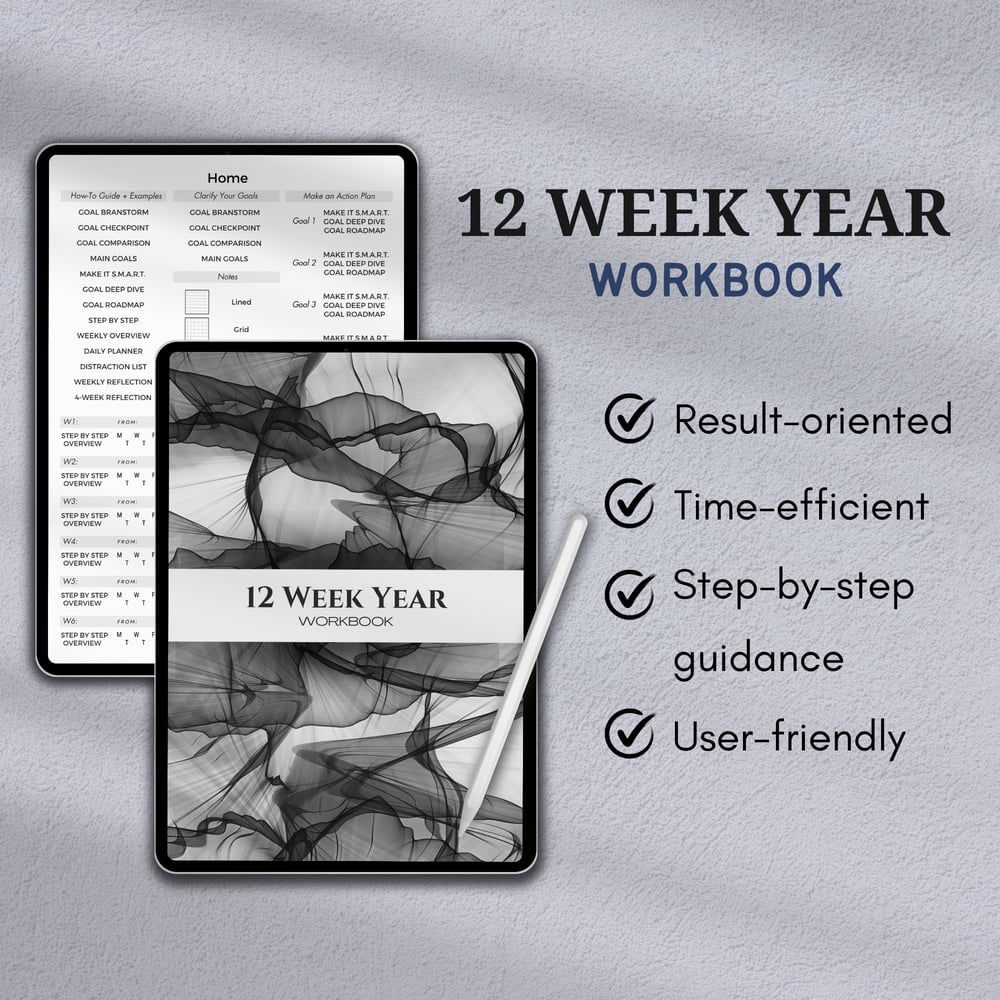
If you struggle with setting and achieving your goals, check out our 12 Week Year Workbook. It’s based on our personal journey of trial, error, and ultimately finding what works. This is the exact tool that helped us follow through — and we believe it can help you too.
3. Prioritize Sleep and Wake Up at the Same Time

A consistent sleep schedule is essential for discipline and mental clarity. Going to bed and waking up at the same time daily helps regulate your body's internal clock, leading to better energy levels, focus, and productivity.
To optimize your sleep, avoid screens for at least an hour before bed, as blue light can interfere with melatonin production. Instead, unwind with relaxing activities like reading, mindfulness, or deep breathing exercises.
If you struggle to wake up, set a fixed time—even on weekends—and reinforce the habit by placing your alarm across the room to prevent snoozing. Immediately exposing yourself to natural light will signal to your brain that it’s time to start the day. Over time, these habits will make waking up early effortless and improve your overall efficiency.
4. Delay Gratification

Self-discipline often comes down to resisting instant gratification. A great trick is to delay making impulse decisions. When you feel the urge to buy or indulge in something, implement a waiting period of 24-48 hours before making a final decision. This method reduces impulsive choices and strengthens your ability to delay gratification.
For example, if you see an expensive gadget you want, write it down along with the date, and revisit the decision after two days. More often than not, the initial urge will fade, helping you make more rational and intentional choices that align with your long-term goals.
5. Create a "Trigger-Free" Environment

Your surroundings influence your habits more than you think. If you want to be more disciplined, create an environment that makes good choices easier. Remove temptations such as junk food, gaming consoles, and social media apps to minimize distractions and make disciplined behavior easier.
For example, keep only healthy snacks in your home, place your phone in another room while working, and replace gaming time with productive activities like reading or exercising. Additionally, set up a dedicated workspace free of clutter to maintain focus. By designing an environment that supports your goals, you’ll make discipline effortless.
6. Learn to Push Through Resistance
If you ever find yourself hesitating, try these simple mental hacks:
- The 5-Second Rule (by Mel Robbins): Count down from five—"5-4-3-2-1"—and take action. This method helps override fear or doubt by initiating movement before your brain talks you out of it. For example, if you’re struggling to start a workout, count "5-4-3-2-1" and immediately begin stretching or putting on your gym clothes.
- The 2-Minute Rule: If a task feels overwhelming, just commit to doing it for two minutes. Once you start, you’ll likely keep going.
These small mental tricks can make discipline feel less daunting and help you take action effortlessly.
7. Adopt a Powerful Alter Ego

One of the most effective ways to develop extreme discipline is by adopting a powerful alter ego that embodies your ideal disciplined self. Think of this alter ego as a version of yourself who is immune to distractions, relentlessly focused, and always follows through on their commitments. By creating this persona, you can act as if you are already the disciplined individual you want to become.
For example, if you struggle with procrastination, create an alter ego called "The Focused Achiever" or "Master of Consistency." Visualize how this alter ego would approach challenges. Would they skip a workout or watch Netflix instead of working on a project? No. They would tackle every task with determination and focus.
Before you begin any task, especially one you’re dreading or feel resistance toward, ask yourself, “What would The Focused Achiever do?” Stepping into this mindset can help you override hesitation and push forward with your goals. By making this practice a daily habit, you will eventually internalize these traits, making them your default mode of operation.
8. Use Negative Reinforcement
Set up painful but motivating consequences for failure in order to enforce accountability. For example, if you miss a workout or fail to keep a commitment, commit to donating a significant amount of money to a cause you dislike or a political cause that goes against your values. This tactic creates a sense of personal loss or discomfort, which can be a powerful motivator to stay disciplined.
You can also extend this idea by asking an accountability partner to verify your success and ensure the consequence is enforced. The discomfort of having to face such a consequence can make you much more likely to follow through on your commitments.
9. Use a Visual Habit Tracker

Tracking progress visually reinforces consistency and makes your efforts more tangible. Use a calendar, habit-tracking app, or even a simple wall chart to mark off each day that you successfully complete your tasks.
The Seinfeld “Don’t Break the Chain” method is particularly effective, where you create an unbroken streak of actions, such as working out, reading, or writing, and your goal is to never break the chain. The method, popularized by comedian Jerry Seinfeld, involves marking an "X" on a calendar each day you complete a task. Over time, the calendar fills up with a chain of X's, and the goal is to never break the chain. As the streak grows, the visual reminder becomes a powerful motivator because breaking the chain feels like losing progress.
This method leverages the human desire for consistency and a sense of accomplishment, making it much harder to skip your daily habits. By seeing the growing streak, you'll feel more compelled to continue your progress, as the fear of breaking the chain motivates you to stay disciplined. This visual method not only helps you stay on track but also strengthens the habit through consistent reinforcement.
10. Strengthen Your Willpower Daily

Strengthen your discipline muscle by saying "no" to small temptations and practicing restraint in everyday situations. Each time you resist impulses—whether it's avoiding junk food, curbing impulse spending, or stopping yourself from scrolling endlessly on social media—you train your ability to make conscious choices over instant gratification.
These small acts of self-control compound over time, gradually building stronger willpower and helping you make more disciplined decisions in larger areas of your life. For example, saying no to that extra slice of cake or resisting the urge to purchase something you don’t need strengthens your overall self-control, making it easier to maintain discipline in more challenging situations.
11. Do Something Hard Every Day
Challenge yourself to do at least one uncomfortable thing daily. Whether it's taking a cold shower, pushing through an intense workout, or diving into a difficult task you've been avoiding, exposing yourself to discomfort is a powerful tool for building mental toughness. The more you practice enduring discomfort, the stronger your resilience becomes.
For example, if you're faced with a challenging project, commit to working on it for 15 minutes, even if it feels difficult. This consistent act of embracing discomfort trains your brain to push through mental barriers, ultimately making you more resilient and capable of handling life's challenges with greater ease.
12. Public Commitment Strategy

Announcing your goals publicly adds a layer of external pressure, which can act as a powerful motivator to follow through. When you share your commitments with friends, social media, or accountability partners, you’re not only making yourself accountable to others, but you also create a sense of responsibility and expectation.
This public commitment strengthens your resolve, as you’re less likely to back out when others are aware of your goals. For example, announcing your intention to work out every day for a month on social media or telling a friend about a big project you're starting can increase your motivation to stay disciplined and complete the task.
13. Create a Personal Manifesto

Write down your core values, guiding principles, and long-term aspirations in a personal manifesto. This document serves as a roadmap for your life, helping you stay aligned with your purpose and intentions. By reading it daily, you reinforce your commitment to your goals and remind yourself why staying disciplined matters.
The act of reviewing your manifesto serves as both a motivational boost and a reminder of your deeper 'why,' helping you make decisions that align with your vision for your life. Over time, this practice strengthens your resolve and keeps you on track, especially when faced with challenges or distractions.
📋 5-Step Action Plan for Building Discipline:
Step 1: Take 15 Minutes to Reflect on Areas of Struggle
Start by identifying the areas in your life where you struggle the most with discipline. Whether it's sticking to a fitness routine, focusing at work, or controlling impulsive spending, pinpoint where your discipline needs strengthening. Reflect on why these areas are challenging and what triggers your lack of discipline. Write it down to have a clearer understanding of where to focus your efforts.
Step 2: Establish a Structured Morning and Evening Routine
Create a structured daily routine that sets you up for success. Start your mornings with actions like meditation, exercise, or journaling to set a positive tone for the day. At night, engage in calming activities such as reading or practicing gratitude. Prioritize consistency in these routines, as they will provide the foundation for greater discipline throughout the day. Schedule your morning and evening rituals for the next week, treating them as non-negotiable.
Step 3: Schedule Time Blocks for Key Tasks
Implement time-blocking in your daily schedule to ensure that you prioritize important tasks. Dedicate specific blocks of time for deep work, personal growth, and other non-negotiable activities, such as exercise or socializing. Stick to these time slots, avoiding distractions during these periods. Treat each time block as an appointment with yourself, and track your progress daily.
Step 4: Implement the 5-Second Rule and Delay Gratification
To overcome hesitation and procrastination, practice the 5-second rule: count down from five and immediately take action on a task you've been avoiding. Combine this with delaying gratification—when you feel the urge to indulge in something impulsive, wait 24-48 hours before making a decision. For example, if you want to buy something unnecessary, sleep on it before making the purchase. These actions will train your brain to be more disciplined.
Step 5: Create an Accountability System and Visual Tracker
Increase your chances of staying disciplined by making yourself accountable. Share your goals with an accountability partner, or announce them publicly on social media to create external pressure. Additionally, use a habit tracker to visually monitor your progress and reinforce positive behavior. For instance, mark off each day you stick to your routine or complete a task. Over time, the growing streak will motivate you to keep going.
Discipline is the bridge between where you are and where you want to be. As you embark on this journey, keep in mind that success isn’t measured by perfection but by progress. Every time you push through discomfort, stay consistent, and honor your commitments, you're building a stronger foundation for your future. You are capable of far more than you realize, and with discipline as your guide, there’s no limit to what you can achieve. Stay focused, stay determined, and let your actions speak louder than your words.



